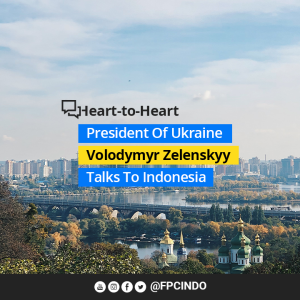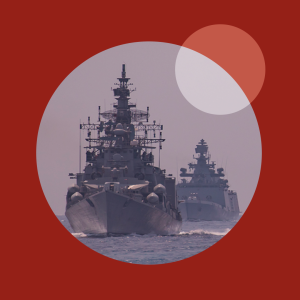FPCI Virtual Discussion “Calming Troubled Waters in the South China Sea”
On Wednesday, 19 August 2020, Foreign Policy Community of Indonesia (FPCI) held a public forum titled ” Calming Troubled Waters in the South China Sea” featuring Prof. Hasjim Djalal, Former Indonesian Ambassador to Germany, Canada, and the United Nations, Expert of International Law of the Sea, Former Chairman & President of the International Seabed Authority; and Dr. Arif Havas Oegroseno, Indonesian Ambassador to Germany, Indonesian Ambassador to Germany, Former Deputy Minister for Maritime Sovereignty, Indonesian Coordinating Ministry for Maritime Affairs. This discussion was moderated by Dr. Dino Patti Djalal, Founder of FPCI.
From the past few months, tension in the South China Sea has been rising. On July 13, 2020, the Secretary of State Mike Pompeo in a press statement reaffirmed the United States’ commitment in the Indo-Pacific and rejected Beijing’s claims on the offshoring of resources in most of the South China Sea. Secretary Pompeo noted that the PRC has been “bullying” Southeast Asian claimants like the Philippines, Malaysia, and Indonesia. On the other side, the Chinese Ambassador to the Philippines Huang Xilian called out the United States for its “intensified meddling” in the South China Sea maritime disputes, and accused the US as using the South China Sea issue as a “geopolitical game. In the middle of China and the United States’ disputes, Indonesia just recently conducted a four-day exercise in the area, which was noted by observers as a “major show of force” against Chinese claims to the area and for CCG vessels that have repeatedly trespassed Indonesia’s Exclusive Economic Zone.
With about 5 trillion in annual global trade passing through the South China Sea, as well as a proven oil reserves of seven billion barrels and an estimated 900 trillion cubic feet of natural gas – a lot is at stake during the growing tension between two geopolitical powers and the Southeast Asian claimants. Experts have argued that diplomatic means is still the key, and a unified stance and response from ASEAN will be crucial. Though some have also argued that ASEAN leaders are still divided on how to best solve the issue, a noteworthy development happened at the 34th ASEAN summit in June 2020 where all ASEAN member states agreed to adopt the ASEAN outlook on the Indo-Pacific, which also reflects a commitment to respect the rule of international law in the South China Sea in accordance with the United Nations Convention on the Law of the Sea (UNCLOS).
Having been working through the diplomatic arena and the multilateral framework that ASEAN offers, Indonesia is also seen as playing a crucial role in dispute resolution in the South China Sea. Some efforts have been made, such as pursuing bilateral negotiations with China, strengthening the ASEAN-China Code of Conduct, and upholding the use of UNCLOS in navigating the complex dynamics between China and ASEAN member states. Some, however, argue that Indonesia should do more, particularly in terms of having a consistent and strategic military deterrence in response to China’s growing assertiveness in the area.
In regards to these developments, the Foreign Policy Community of Indonesia introduced the discussion that gathered Indonesian experts to talk about the issues from an Indonesian perspective, geopolitical implication to Indonesia and Southeast Asia in this dispute, and what to expect from this tension.





